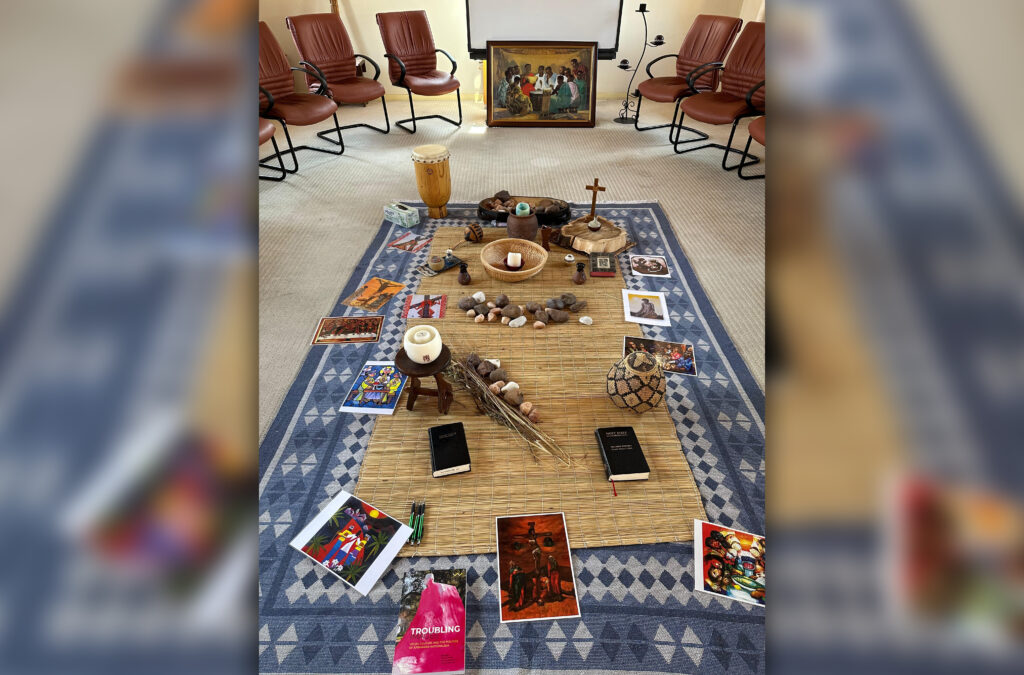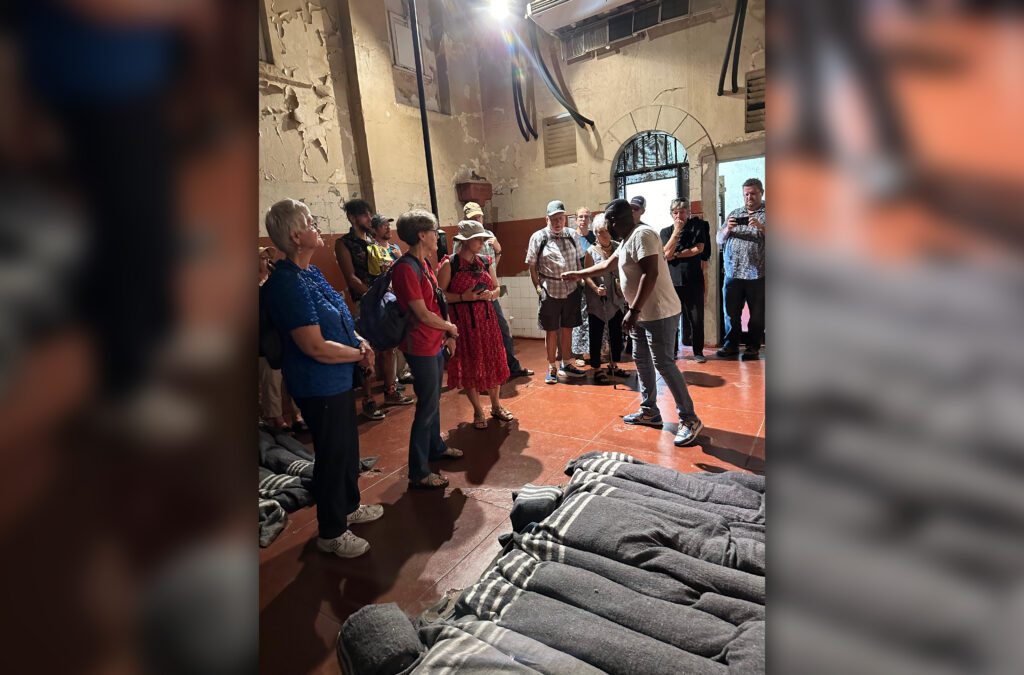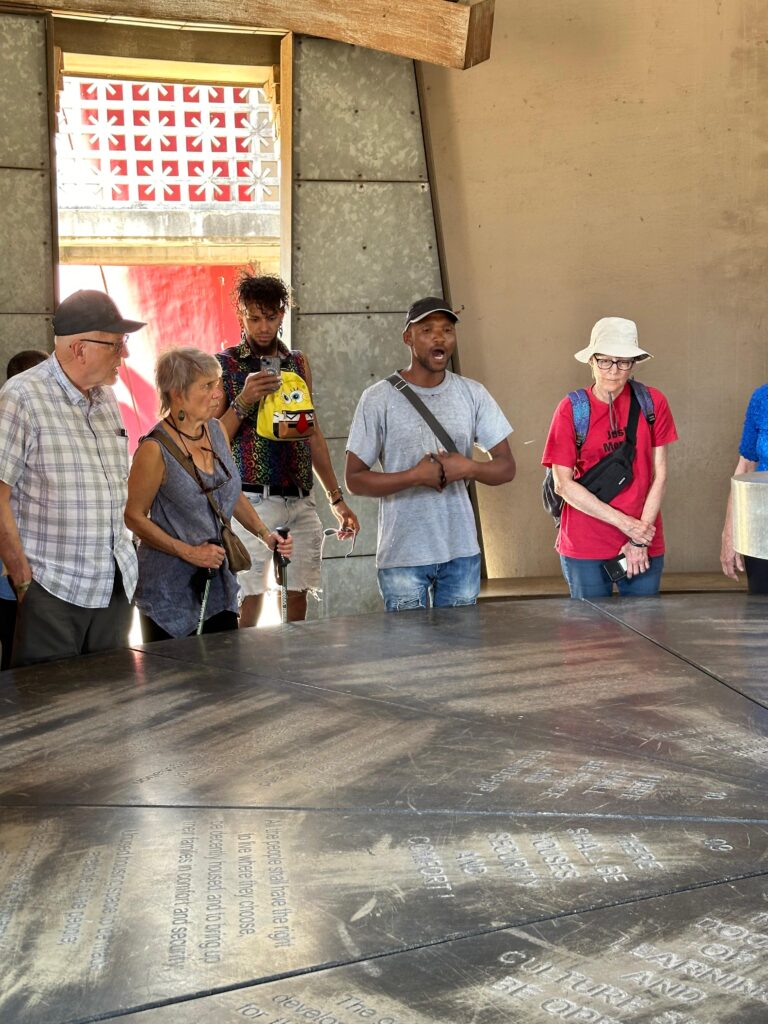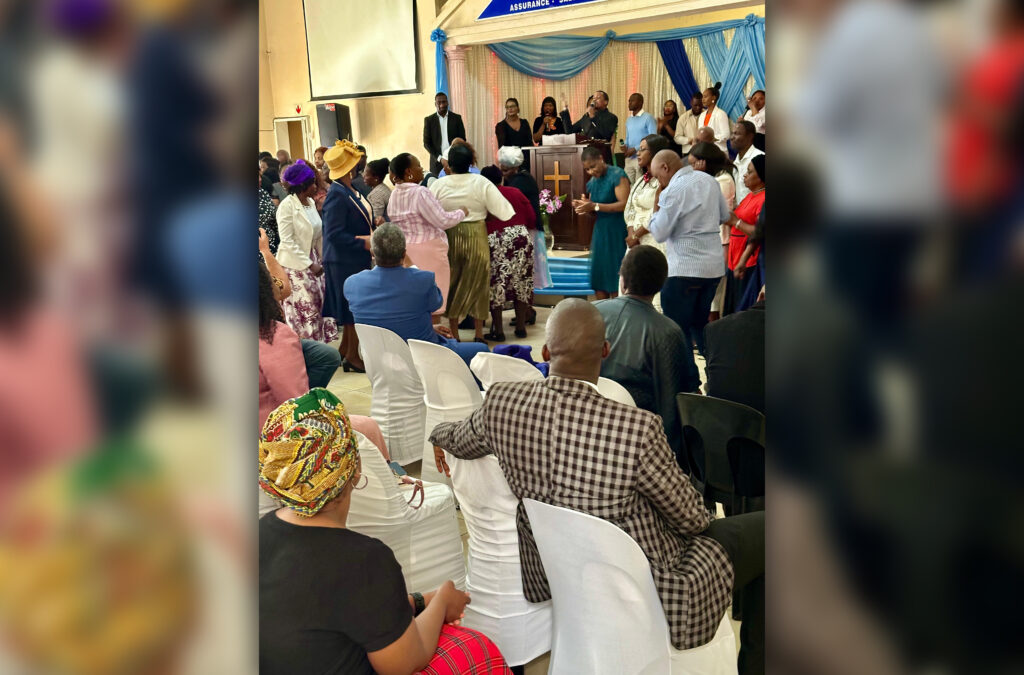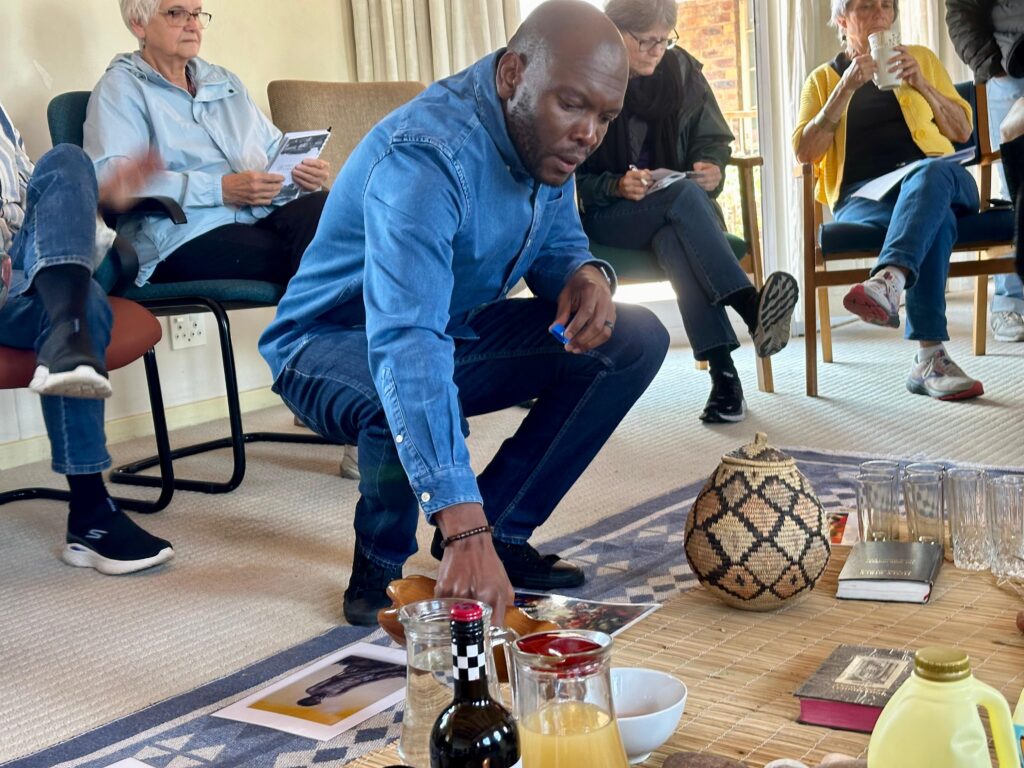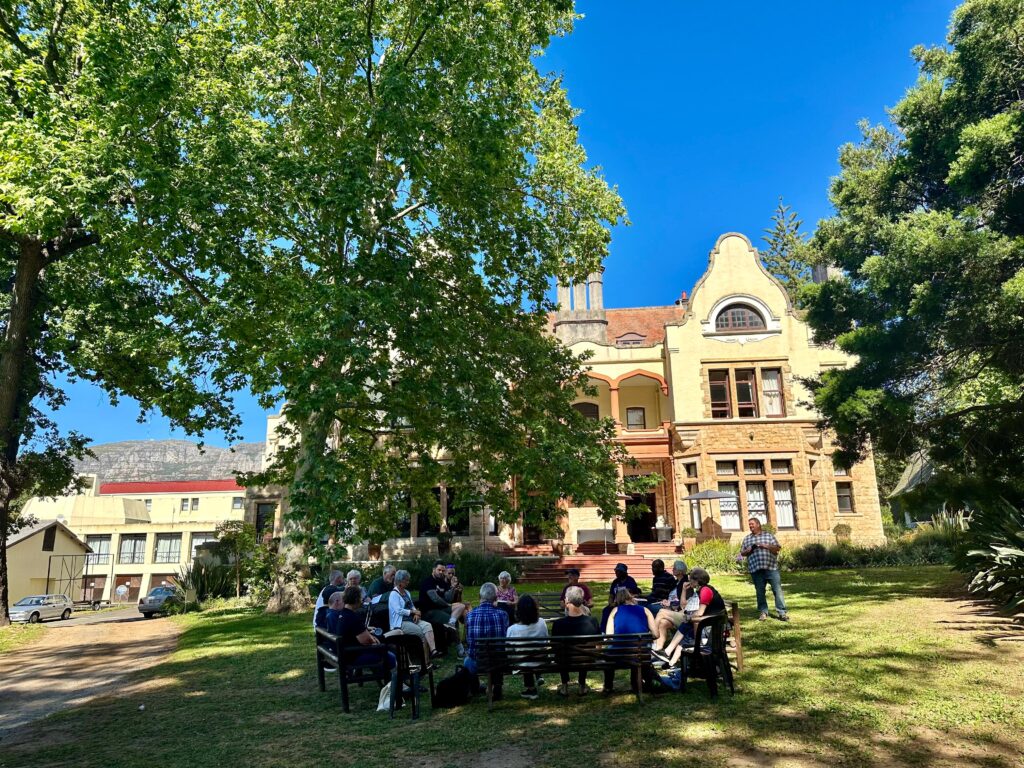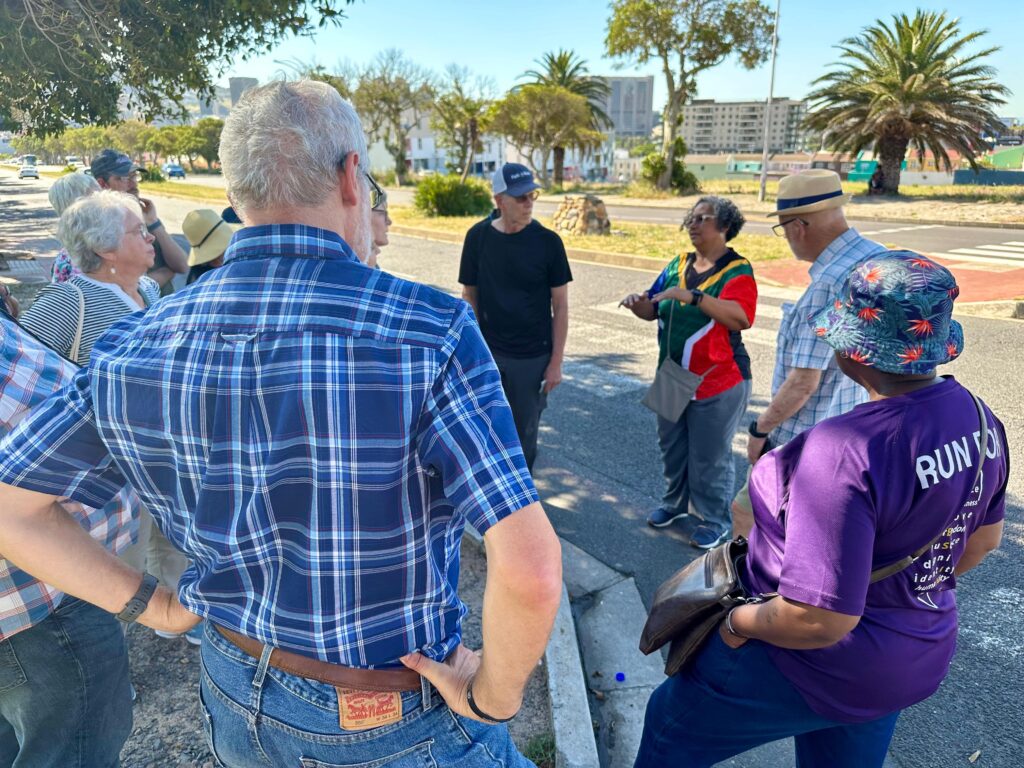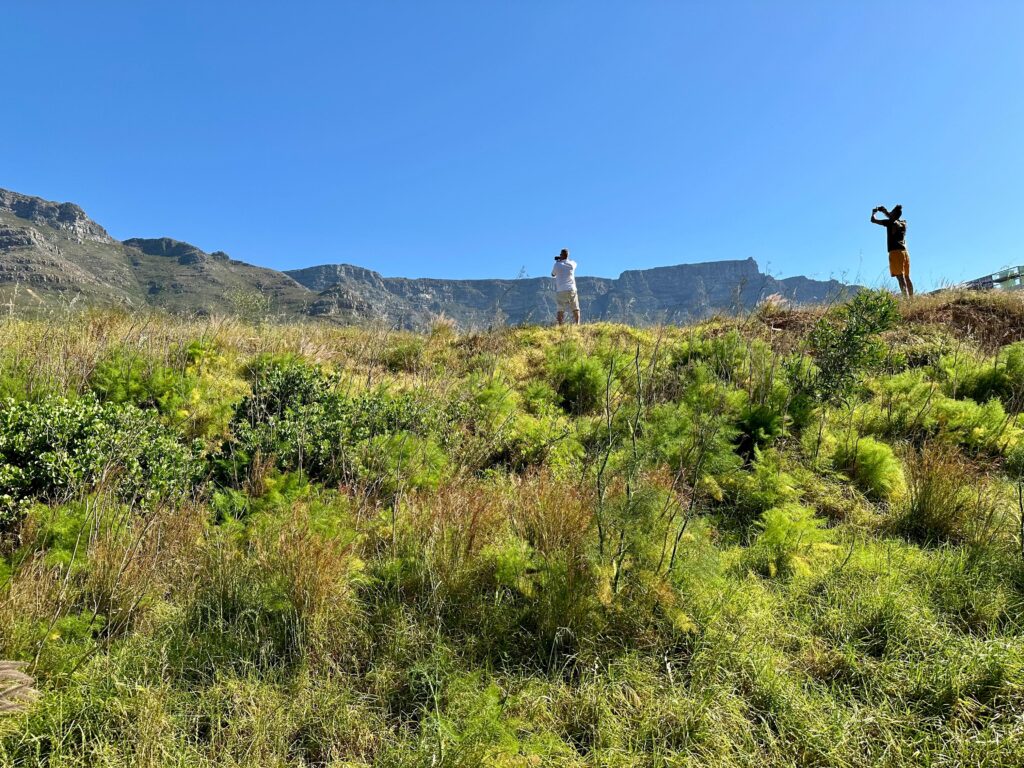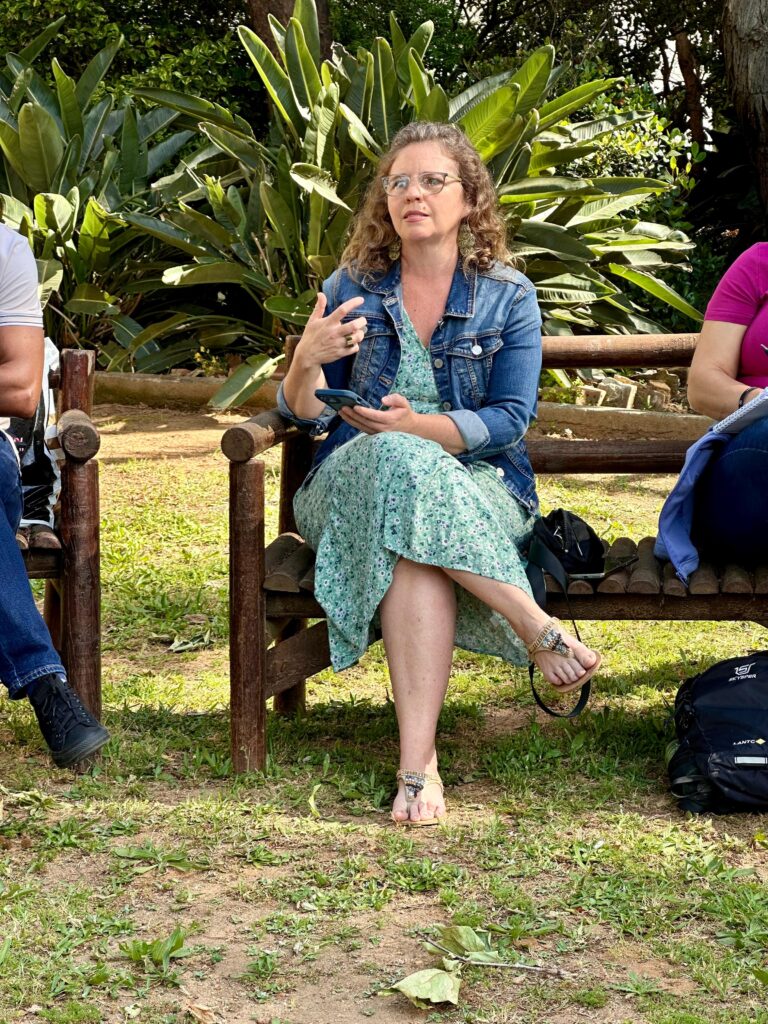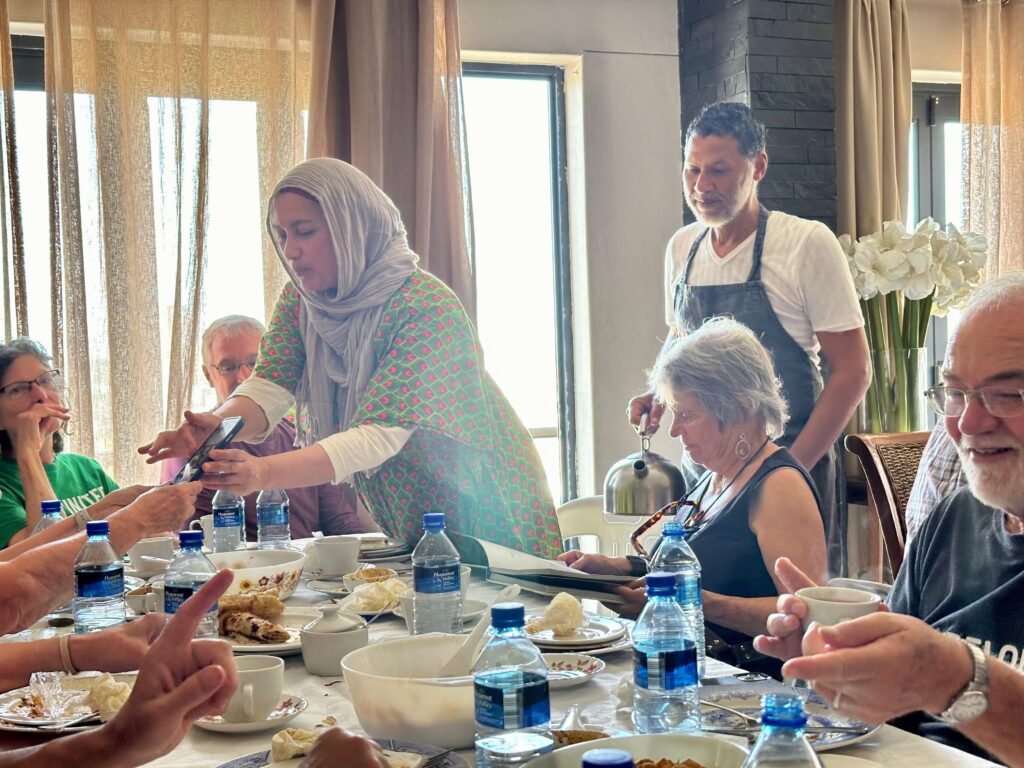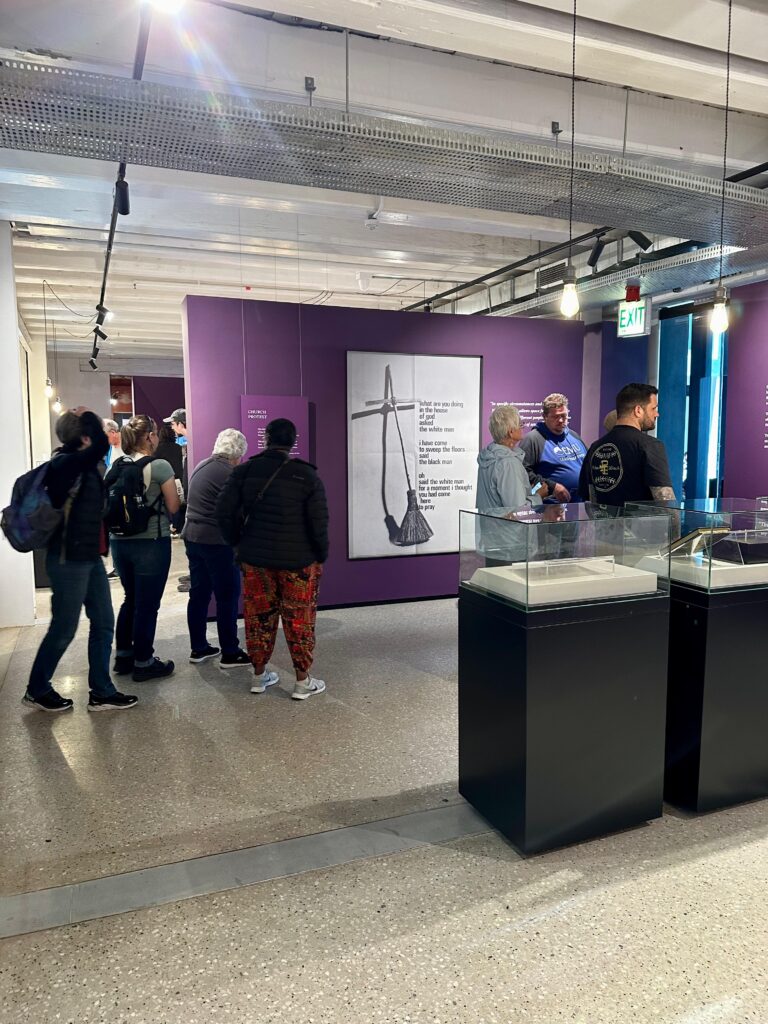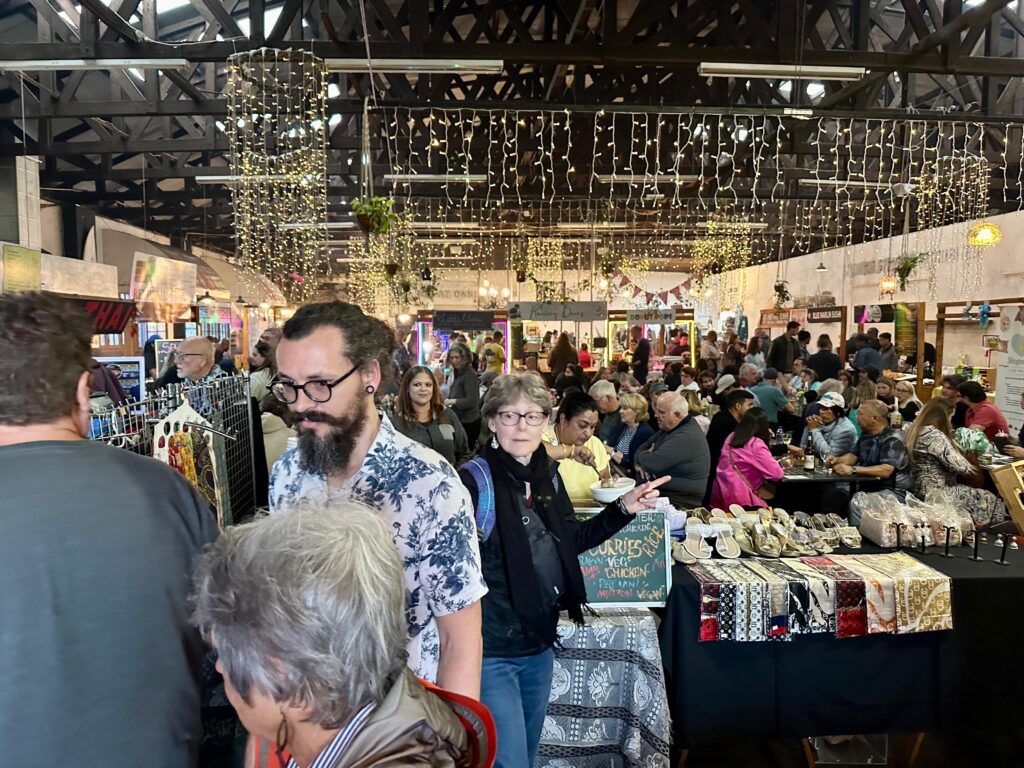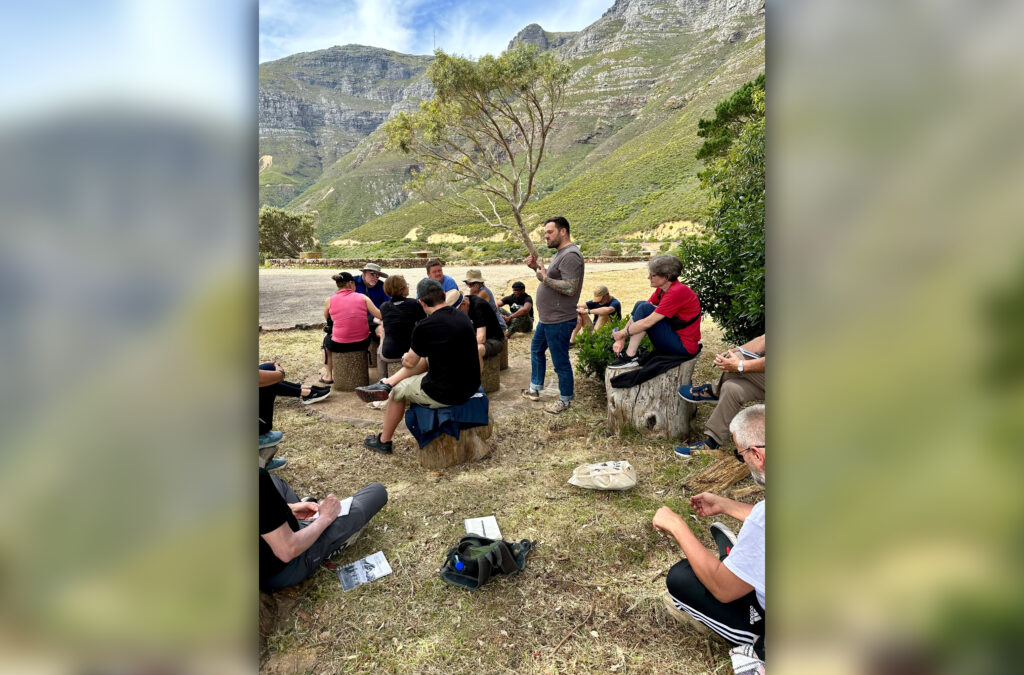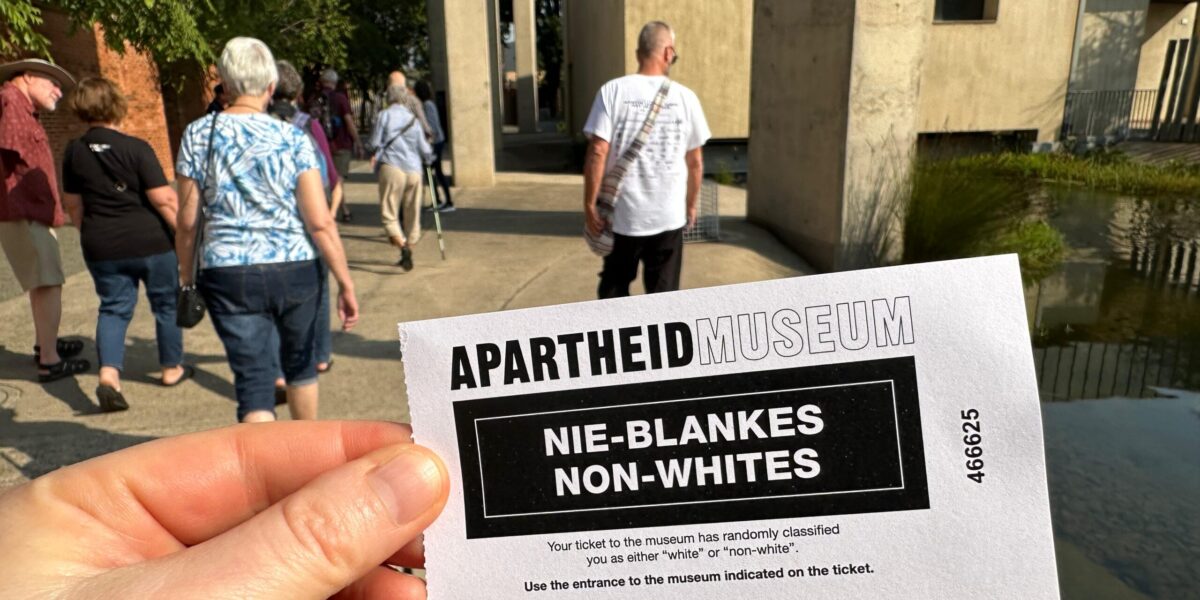20 people from across the United States joined Chapter 2 of Mennonite Mission Network’s Racial Justice Pilgrimage. The Just Peace Pilgrimage ran from October 16-27 and had the group travel from Johannesburg to Cape Town, exploring the long history and legacy of colonialism and apartheid — a political social engineering project based on racial segregation in South Africa.
Jennifer Murch, who attended Chapter 1 of the Racial Justice Pilgrimage last year, documented the group’s experience through photos.
The pilgrimage was organized by Iziko Lamaqabane. According to their website, Iziko Lamaqabane “serves those active at the site of struggle by facilitating spaces of retreat, exchange and collective learning grounded at the intersection of Anabaptism, Black liberation theology & critical consciousness.”
